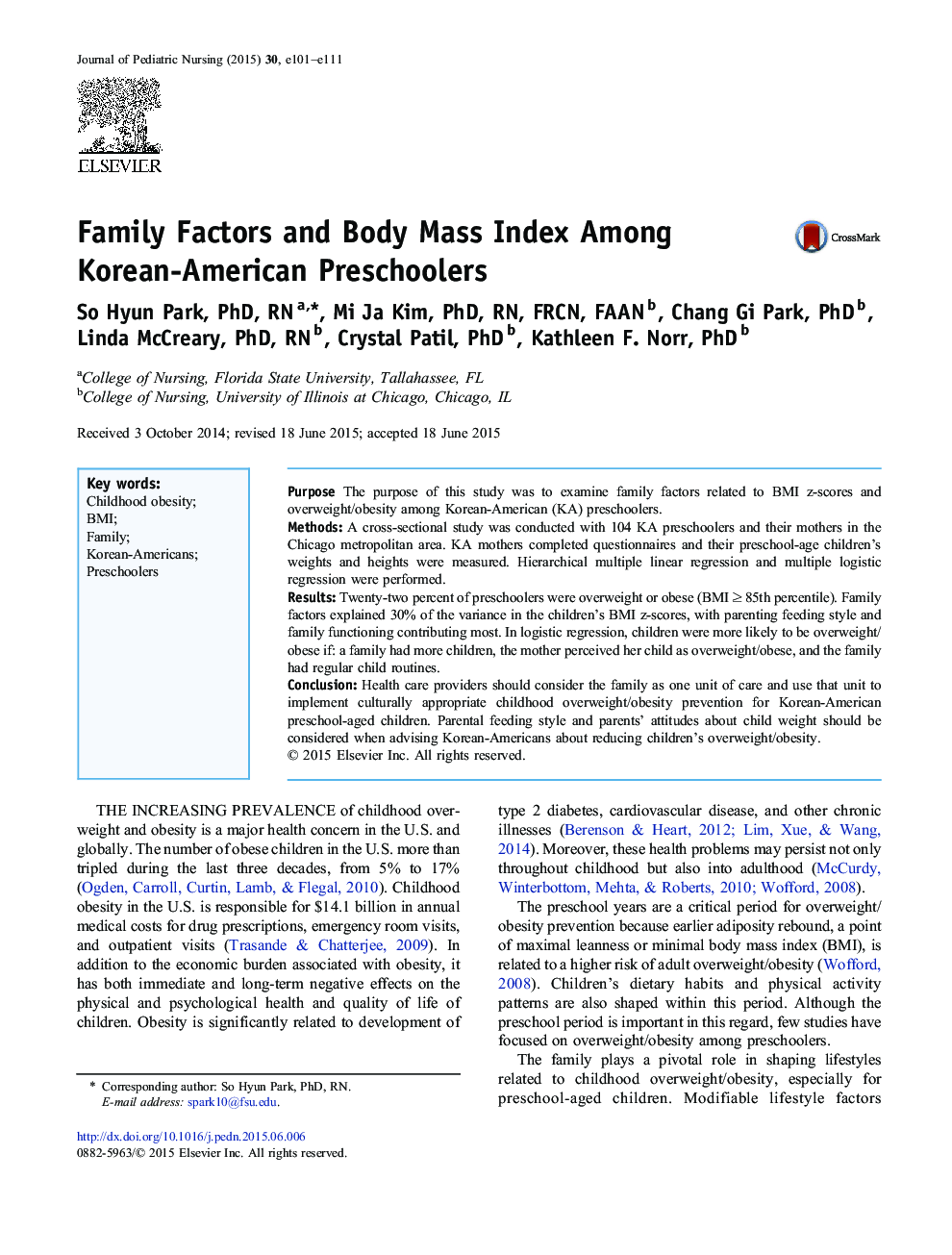| Article ID | Journal | Published Year | Pages | File Type |
|---|---|---|---|---|
| 2663742 | Journal of Pediatric Nursing | 2015 | 11 Pages |
•This study examined family factors related to BMI z-scores and overweight/obesity among Korean-American preschoolers.•Family systems theory was used as the conceptual framework to test relationships in the family domain, which consisted of family background, family system (structure, functioning, and interactions affecting the child), childcare arrangement, and child's routines.•In this study, 22% of KA children were overweight or obese, suggesting that early childhood overweight/obesity is a substantial problem in the KA community.•Parental feeding style and parent's child weight perception should be considered when advising KAs about reducing childhood overweight/obesity.
PurposeThe purpose of this study was to examine family factors related to BMI z-scores and overweight/obesity among Korean-American (KA) preschoolers.MethodsA cross-sectional study was conducted with 104 KA preschoolers and their mothers in the Chicago metropolitan area. KA mothers completed questionnaires and their preschool-age children's weights and heights were measured. Hierarchical multiple linear regression and multiple logistic regression were performed.ResultsTwenty-two percent of preschoolers were overweight or obese (BMI ≥ 85th percentile). Family factors explained 30% of the variance in the children's BMI z-scores, with parenting feeding style and family functioning contributing most. In logistic regression, children were more likely to be overweight/obese if: a family had more children, the mother perceived her child as overweight/obese, and the family had regular child routines.ConclusionHealth care providers should consider the family as one unit of care and use that unit to implement culturally appropriate childhood overweight/obesity prevention for Korean-American preschool-aged children. Parental feeding style and parents' attitudes about child weight should be considered when advising Korean-Americans about reducing children's overweight/obesity.
